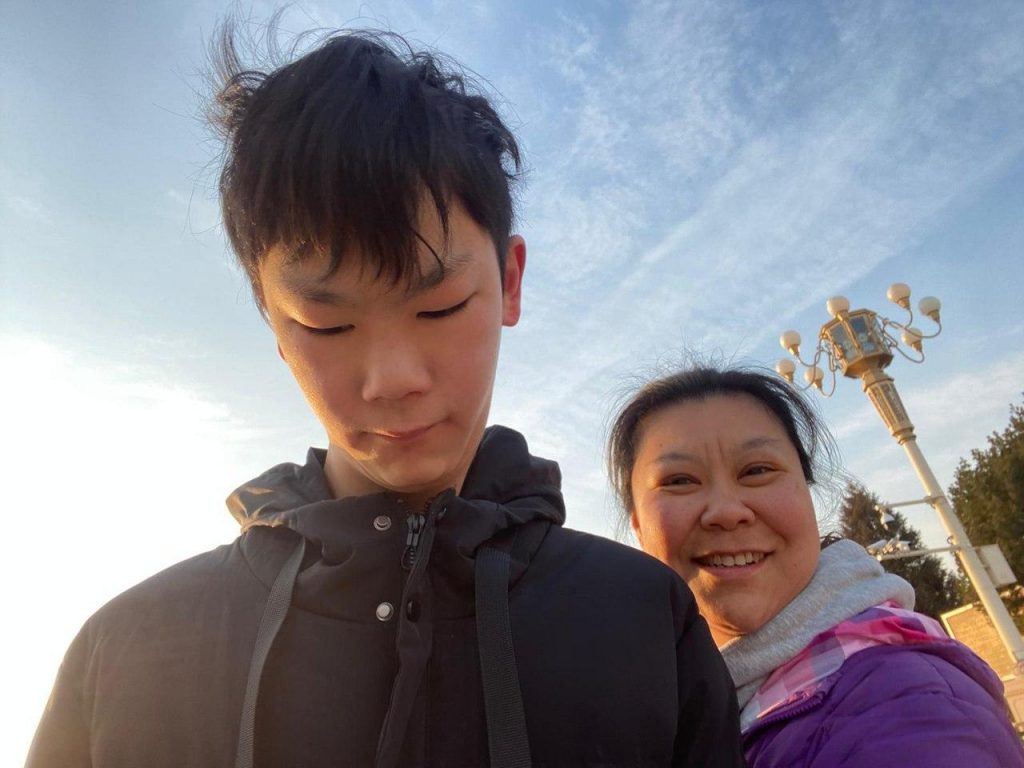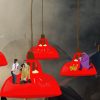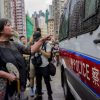Original: 【照顧者的抗疫日常】之三 放下工作照顧兩個特別孩子的媽媽, published in Grass Media Action
Translators: JP, yehua
If you would like to be involved in our translation work, please get in touch here.
Series table of contents:
FOREWORD
PART ONE: Care work, employment and race
PART TWO: Twenty years as a migrant worker mother
PART THREE: Caring for children with special needs
Translators’ note: Different communities speak about disability in different ways: some argue that it is important to use the word ‘disabled’ rather than any euphemistic terms that de-emphasize societal and structural barriers, others prefer terms such as ‘differently-abled’ and ‘different abilities’ to shift the focus from what people cannot do. When speaking about variations in neurocognitive functions, some communities have argued for the need to speak about ‘neurodivergence’ and ‘neurodiversity’ in the place of other terminology. The use (and abuse) of these terms is also dependent on the local context and language in which they operate.
In Hong Kong, the language used to describe disability, such as the word ‘handicapped’, has pejorative connotations in Chinese and English; however, the word ‘handicapped’ is also a commonly used term that is used by some disability advocates and disabled people to refer to their own situation. At the same time, other communities may prefer terms like ‘differently-abled’ or ‘having different abilities’. We had a long discussion with the interviewer about what translation to use, balancing the above considerations with our different English-reading audiences.
In the end, we decided, agreeing with the interviewer, that using the term ‘people with different abilities’ and ‘special needs’ would allow for us to preserve disabled people’s agency, while highlighting the interaction between disability and different care needs—which is the focus of this piece.
Interviewer’s note: This is probably the first report I have ever done. When I first entered university, I started serendipitously interacting with different migrant worker groups—in the blink of an eye, it has almost been five years. About half a year ago, when I started doing DanceAbility, I became aware of the issues facing people with different abilities. Sometimes, I think about how many people with different abilities are also cared for by migrant domestic workers: can the struggles of migrant workers and people with different abilities be connected? For a long time, this is just a thought that would occasionally pop up in casual conversation.
This year’s One Billion Rising took place on March 8, the International Working Women’s Day itself, right in the middle of the pandemic. For the first time, the campaign was organized by migrant worker organizations together with local women’s rights organizations. Migrant workers and other women have taken on many responsibilities of care in this pandemic, so we decided to mobilize our agenda around our identity as “carers” and as people whose circumstances have been sorely neglected in our society. Some friends raised the idea of conducting interviews and writing this series.
I want to thank the communities, places, connections, organization and situations that have carried me along this path, nurturing my slow thinking and allowing me to figure all of this out and complete this report. I am so grateful to have met the people in migrants solidarity committee autonomous 8a and to have been able to grow in this space.
As a result of the coronavirus, Hong Kong has suspended classes for many months. Carers have borne the brunt of this stressful situation. In one survey, over half of the women interviewed said that they have had to take care of their children and elderly members of their households for the entire day. Over 40% of women interviewees had been forced to stop working due to caring responsibilities. For those with special needs, their carers experienced even greater levels of stress. Classes may have been suspended, but learning has not; many parents have complained about this situation, but what has been the experience of parents of children with different abilities[1] and children with special needs? Through the Association of the Severely Mentally Handicapped (ASMH), we got into contact with Snow and learned about her experience of the last few months.
On the day of our interview, I joined Snow, her youngest son, and Lee Chi-yung from ASMH at a playground near Snow’s home. As we sat down to chat, Snow’s energetic youngest son kept himself entertained. Hair tied in a ponytail, Snow is a mother of two boys: Her eldest, now fifteen, was born prematurely and, due to a rare disease at birth, has developed different intellectual abilities; her youngest is in 4th grade, and has mild autism and ADHD. Before the coronavirus outbreak, her youngest went to school everyday whereas her eldest would stay in school residences, coming home only on Wednesdays and Thursdays.[2] Snow also employed a migrant domestic worker (jeje: Cantonese mode of address literally meaning “sister”) to help take care of her children, so that she could go to work.
Parents and children both forced to stay home
“Actually, I was happier and less drained when I was still working.” When class suspensions were first announced at the start of the outbreak, Snow’s newly employed jeje was still getting used to taking care of the children. After some thinking, Snow left her job as a full-time secretary in order to dedicate her time to looking after her children. Snow is a competent employee and her company previously offered to allow her to work from home, but she knew that she would not be able to simultaneously take care of her two children and manage her work. Not wanting to affect her company’s business, she decided to resign. Snow admitted that her family is likely to face financial difficulties, now that she has quit her job and her husband’s work as an engineer in a factory in Mainland China is similarly suspended. Snow’s employer told her that she could rejoin the company when the pandemic is over, but no one knows when that will happen; all Snow can do is to take things one day at a time.
Snow’s daily routine now goes like this: her eldest son wakes up at 6:30am, Snow and her jeje would then spend the whole day looking after the two children and helping them with their homework until 9pm, when they rush the children off to sleep. Every three or four days, they also have to buy groceries. The cycle repeats every single day. “It’s like being in prison! I can never go out, it’s so difficult to be cooped up and take care of them all day like this.”
Can the struggles of migrant workers and people with different abilities be connected?
Sometimes, when he finds out that his mother is going out to do the shopping, Snow’s younger son will insist on coming along. Snow always has to remind him to wear a mask and takes him to wash or sanitize his hands every two hours. Her eldest son is not so lucky: Ever since the virus outbreak in Lunar New Year, he has not left the house—Snow describes her son as “growing mould” from being left at home.
I asked Snow whether her son had any temperamental reaction to not being able to go outside. Snow told me that he often becomes frustrated. Although he does not know how to verbally articulate his dissatisfaction, when he sees Snow take his younger brother out, he will wordlessly close his door, as if to indicate to his mother: “Why won’t you take me outside? You’re taking my younger brother out—why not me?” Snow was anxious to explain that she also wanted to take him out for walks, but he is 1.78m tall—how can Snow handle taking him outside on her own? Snow had previously thought about asking her husband to take her son out, but he ultimately thought that in these risky times, their son should stay at home. Snow also worried that if her elder son didn’t wear a mask when they all went out, they would be judged by people on the street or attract undue attention. For all these reasons, she reluctantly decided to leave him at home.
Where do class suspensions leave children with special education needs and their parents, who must step up as teachers?
“Lok Lok doesn’t have to go to school today; what is Lok Lok going to do at home?” is Snow’s eldest and homebound son’s favourite line in his teacher’s storybook voiceover. He also likes listening to nursery rhymes and English songs, and is constantly nagging his mother to sing them for him. When she starts singing, he would instantly prick his ears in the direction of her voice. The thing he does most often is sit in the living room, playing with an iPad and his phone.
The special education needs school has given him some homework, but he has found the content very boring as he has already completed most of these assignments through an external speech therapy course. Even if he is learning things that the external course didn’t cover, it is sometimes too easy—he may be interested at first, but once the content gets repeated, he will start losing interest; when repeated again, he would simply refuse to do the work.
Snow has previously requested that the school adjust the level of assignments given to him. The teacher said that they would handle it, but the level of homework has still remained the same. Snow said that her eldest son now knows how to count from 1 to 100, and how to spell certain English words, all because he often sneaks glances at his younger brother doing homework on an iPad.
Doing homework in the time of COVID-19
Apart from taking care of her eldest son, Snow also has to teach her youngest son how to do his homework. He still has regular classes, so his days are more “packed” than his brother’s, but learning at home actually makes life much more difficult for Snow. Snow said that sometimes she gets so frustrated that she feels like her blood vessels are going to burst: “I know he really doesn’t want to do his homework, but what’s going to happen when they go back to school after the pandemic ends?” Without a proper learning environment, it is quite difficult to expect a child with special education needs to attend classes and do homework through a computer screen.
The content of the homework is also much more difficult than before, which has given Snow a real headache: “They have to learn the Analects of Confucius when they’re in primary school. I only learned them when I was in secondary school! It’s hard enough for children with a relatively good level of Chinese to understand them. What are children with special educational needs supposed to do?” She tried to explain this to the school teachers—whenever she needs help with homework teaching, she would call the school to ask for guidance—but she would only receive a reply a few days later. When she did manage to reach a teacher, they would say: “Try to explain it, you are his mother,” when in reality, Snow has already tried more than twenty times to teach her son the content to no avail. Snow is worried that when her son goes back to school, he will be unable to catch up, which is almost a certainty given classes have been suspended for more than two months. Snow has resigned herself to trying to figure things out once regular classes resume.
Hong Kong’s deficient social care provision leaves parents with no real alternative
Despite the stress that comes with the everyday care of her two children, Snow usually describes it as “manageable so far.” Snow has taken up the role of liaising between the parents and the special education needs school that her elder child attends. She knows many of the parents as she would check on them and their children in her free time, and has discovered that twelve of the children have been sent back to the school residence, and their parents have been struggling to cope with the load of care work. Some of these children are wheelchair users, while some others have “high tension.”
I asked, “What is high tension?” Lee, who was sitting next to us, explained that our bodies are controlled by the motor cortex of our brains. Because of the way their brains have developed, people with different abilities face challenges controlling their muscle tone. For some children, this means their muscles and joints are often taut, while others may suffer from impaired motor abilities. Children with high tension could be triggered by minor external stimuli, causing their muscles to tense up or even suddenly seize. Such movements are usually very forceful and unpredictable, so their carers must be very careful when looking after them to avoid hurting themselves or their children. It’s easy to imagine how much of a daily struggle it is for mothers to take care of these kids, carrying them upstairs and downstairs on their own.
Snow admitted that she had thought about sending her elder son to the school residence, but it would be inconvenient for him to visit home during his stay there as the residence, like most care homes in Hong Kong, is quarantining everyone for 14 days upon arrival. Lee told me some care homes have turned away visiting family members, and have even refused to let those in care contact their families via video call, citing privacy reasons. This means parents have no way of learning about their children’s situations. On the contrary, the special needs school does let parents visit their children staying in residence, but parents usually have to go out of their way to get to the campus because of its remote location.
In Hong Kong, there are very few options for adults with different intellectual abilities to live and receive care. Staying with their families would drastically intensify carers’ workload, but they only get minimal support from society and the public sector.
Some parents have reluctantly sent their children to the residence because the workload and stress of caring for them is too much to manage, but they have to endure being separated from them in a constant state of worry. Snow said the moment they hear about their children feeling ill, they would want to pick them up and take them back home, “especially the families who only have one child—they worry even more.” This puts those parents under considerable stress and anxiety. Snow added that the children are better off having their meals at home, because “the food they serve at school is really bland.” Lee explained that the menus at the school residence are rigorously designed by dietitians, so they tend to be a bit more plain. For all these reasons, Snow decided to take care of her eldest at home herself, even though it is “a real struggle.”
Pandemic or not, Snow hopes that her eldest would be allocated a place in an adult care home with better facilities. In Hong Kong, there are very few options for adults with different intellectual abilities to live and receive care. Staying with their families would drastically intensify their workload of care, as people with different abilities face many obstacles in their daily lives and have more complicated care needs, but carers only get minimal support from society and the public sector. Even if we set aside the difficulty of balancing and managing both wage work and care work, these parents will eventually grow old and become unable to care for their children with different abilities: what then happens to their lives?
This is why these families would invariably apply to get their children on the waitlist for care homes for people with different abilities—if they secure a place, then at least their basic needs would be taken care of. But demand greatly outstrips supply: the current waiting times are more than ten years. Even if a family can afford to send their children with different abilities to a private care home—the relatively cheap ones usually cost HK$5000 to HK$8000—there are no guarantees for the quality of the care they provide. An incident in which an autistic care home resident fell to their death as well as a sexual assault scandal involving the dean of the same care home—called Bridge of Rehabilitation—emerged only a few years ago. How are parents to trust their children with these private care providers?
Importing workers as a substitute for care policy: Tensions between parents and jeje
For families trapped between a rock and a hard place, hiring migrant domestic workers seems to be the only option left, but even this is far from straightforward. Snow has employed four migrant workers thus far. One of them not only ably took care of Snow’s elder son, but also followed the speech therapist’s advice and helped him with speech practice at home, even when she returned to her home country on holiday. But others have struggled to communicate with him and shoulder the burden of caring for Snow’s sons.
Snow’s current jeje came to Hong Kong just as the coronavirus was breaking out and helpfully brought along a few packs of masks. But she has yet to adapt to the care needs of Snow’s eldest, which causes Snow frustration sometimes. Things haven’t been easy for jeje either: Snow—who understands Bahasa Indonesia as her mother used to live in Indonesia—has heard jeje grumble about how she couldn’t get any rest and has a headache as Snow’s son wouldn’t go to bed at night.
The Hong Kong government has substituted implementing an adequate social care system with importing migrant domestic workers, conveniently sequestering the responsibility to take care of its people into the domestic sphere.
I’ve heard from many migrant sisters that they are charged exorbitant fees by the overseas domestic work training centres and agencies in their home countries, only to receive very basic and perfunctory training—far from what is needed to be able to care for folks with special needs. Apart from that, is it really a fair ask to put the burden of care and the expectation of specific skills on migrant domestic workers, who only make roughly HK$4000 per month?
Over the past decades, the Hong Kong government has substituted implementing an adequate and well-functioning social care system with importing migrant domestic workers. This has allowed the state to conveniently sequester the responsibility to take care of its people into the domestic sphere, leaving employers and jeje to negotiate how to shoulder the burden of care on their own. Snow suggested that the government should at least provide migrant domestic workers with the relevant training and certification, so that parents have a proper avenue to find jeje who are capable of taking care of folks with special needs.
But for many grassroots families that have to care for family members with with different abilities, they may well lack the financial means to hire jeje. The Special Care Subsidy scheme, provided by the government and the Community Care Fund, is meant to financially support these families so that they can obtain care products and services. However, only applicants receiving Higher Disability Allowance and have low household income are eligible for the scheme. Folks with different mental abilities face a double bind: Those with a serious enough condition to qualify for the Higher Disability Allowance would nevertheless not be able to apply if they live in subsidized special needs school residences, which means they also become ineligible for the Special Care Subsidy.
In reality, if she is able to afford it and can make such a choice, Snow also hopes that her son can live at home or on his own. However, there is very little social support available. It’s hard to see a way out.
How a parents’ organization became a platform to unite and fight for children’s welfare
During the interview, Snow would often mention the names of other parents, enthusiastically telling me and Lee that she could try to invite them to be interviewed. Snow participates actively in ASMH, which was established in the 1990s by a group of parents of children with different mental and intellectual abilities, to uphold their children’s rights and to make their views heard by various government departments. To this day, ASMH continues to advocate for people with different intellectual needs: it reflects their views toward society, follows up on the progress and quality of various social services, and supports parents. Recently, one of the most important campaigns of the organization has been to source masks and other hygiene products from various channels to distribute to adults and children in districts across Hong Kong, helping to soothe people’s anxieties.
I asked what Snow thought about participating in a group like ASMH. Without a second thought, she said, “It makes me happy! I can meet different people, help unite parents, and together, we can think about how to help this group of vulnerable children fight for their rights.” This group also provides parents with a platform to mutually support one another. At her eldest son’s school, she actively volunteers as a contact point for parents, chatting with other parents often. However, as a result of pandemic, as well as parents’ inability to leave their children at home, there have been less frequent meeting; instead, they exchange news about their situations through social media, providing each other support.

Footnotes
[1]Society usually refers to children whose IQ does not reach a certain, societally-defined/medically-defined standard as disabled; however, this is a description originating from an able-centric view of society, which emphasizes these children’s “lack” of ability. Another way of understanding this phenomenon is that people have many different abilities, and the abilities that these children have is different to that of the majority of the public. We have chosen to use the word “people with different abilities” as a way of respecting diverse abilities, in a spirit of solidarity.
[2]Hong Kong people often refer to migrant domestic workers of different ethnicities as foreign workers, whereas the Hong Kong government refers to them as foreign domestic helpers. We believe that many of these workers have worked for many years in Hong Kong, and have made countless contributions to Hong Kong’s society and economy; they are therefore a crucial part of the Hong Kong labouring population. These labels create an unnecessary distinction between the in-group and the out-group and are exclusionary. For this reason, we have chosen to use labels specific to different ethnicities of workers, as a way of showing solidarity with workers.






